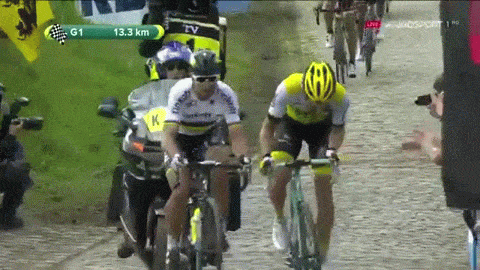Saw that GCN video yesterday. It’s interesting what we don’t know.
Personally, I think it comes down to what you train towards. You can train to be good at spinning or train to be good at grinding, but I think you can’t train to be good at both at the same time.
I know someone who grinds continually, is very fast indeed, but can’t spin as fast no matter how hard they try.
I used to be a spinner, but now lean to the grinding style. I have a semi-compact and shorter cranks now and am less tired than when I had the compact and longer cranks. All by just riding differently over time.
I honestly think that each of us has a natural cadence and will be most efficient close to that, unless we concentrate on training otherwise.



